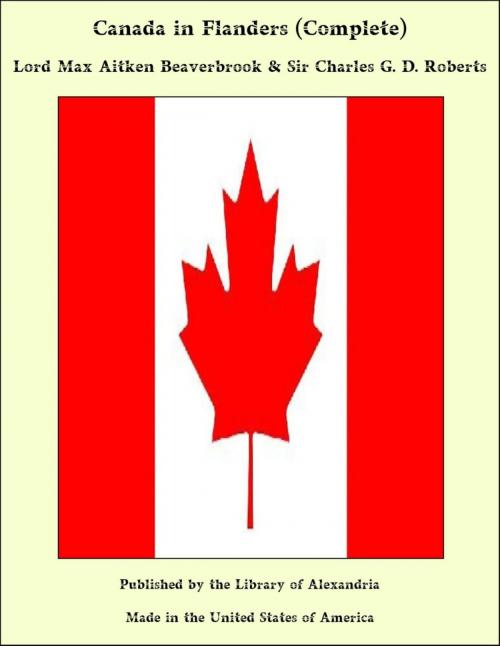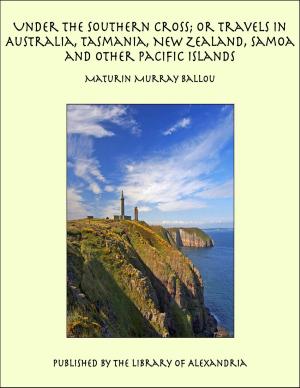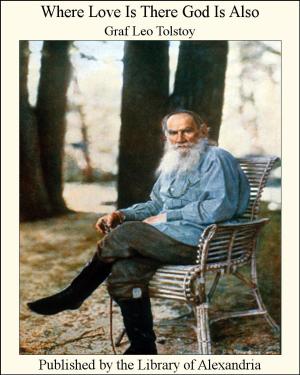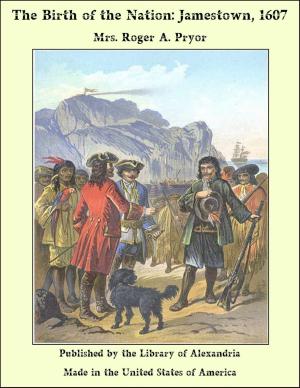Canada in Flanders (Complete)
Nonfiction, Religion & Spirituality, New Age, History, Fiction & Literature| Author: | Lord Max Aitken Beaverbrook & Sir Charles G. D. Roberts | ISBN: | 9781465602404 |
| Publisher: | Library of Alexandria | Publication: | March 8, 2015 |
| Imprint: | Language: | English |
| Author: | Lord Max Aitken Beaverbrook & Sir Charles G. D. Roberts |
| ISBN: | 9781465602404 |
| Publisher: | Library of Alexandria |
| Publication: | March 8, 2015 |
| Imprint: | |
| Language: | English |
More than a year ago the bugles of the Empire sounded throughout the world the call to duty. The justice of the cause was recognised in every quarter of the King's dominions, and nowhere more fully than in Canada; it has since been confirmed by the judgment of the civilised world. Within a week Canada had sprung to arms; within three weeks 35,000 men were marshalled on Valcartier Plain, which had been transformed, as if by magic, into a great military camp; within six weeks from the outbreak of war a Canadian Division, fully organised and equipped in every branch of the service, with a surplus of guns and ammunition nearly sufficient for another Division, and with a detail of reinforcements amounting to 10,000 men, was ready to proceed overseas. Twice in September of last year I saw these forces march past under review by the Duke of Connaught. Later, I visited every unit of the contingent, addressed their officers, and bade them all God-speed. The Armada which left the shores of Gaspé on October 3rd, 1914, carried the largest army that ever crossed the Atlantic at one time. In the midst of the following winter they went to the front. Few of them had any previous experience of war. They had lived in a peace-loving country; they had been gathered from the varied avocations of our national life; they had come from the hills and valleys and surf-beaten shores of the Maritime Provinces; from the banks of the St. Lawrence and its hundred affluents in the two great central Provinces; from the mining and lumber camps of the north; from the broad prairie Provinces and their northern hinterlands; from the majesty of the mountains that look to the east upon the prairies and to the west upon the Pacific; from the shores of the great western ocean; from all the far-flung communities of our Dominion they had hurried, quickly responsive to the call.
More than a year ago the bugles of the Empire sounded throughout the world the call to duty. The justice of the cause was recognised in every quarter of the King's dominions, and nowhere more fully than in Canada; it has since been confirmed by the judgment of the civilised world. Within a week Canada had sprung to arms; within three weeks 35,000 men were marshalled on Valcartier Plain, which had been transformed, as if by magic, into a great military camp; within six weeks from the outbreak of war a Canadian Division, fully organised and equipped in every branch of the service, with a surplus of guns and ammunition nearly sufficient for another Division, and with a detail of reinforcements amounting to 10,000 men, was ready to proceed overseas. Twice in September of last year I saw these forces march past under review by the Duke of Connaught. Later, I visited every unit of the contingent, addressed their officers, and bade them all God-speed. The Armada which left the shores of Gaspé on October 3rd, 1914, carried the largest army that ever crossed the Atlantic at one time. In the midst of the following winter they went to the front. Few of them had any previous experience of war. They had lived in a peace-loving country; they had been gathered from the varied avocations of our national life; they had come from the hills and valleys and surf-beaten shores of the Maritime Provinces; from the banks of the St. Lawrence and its hundred affluents in the two great central Provinces; from the mining and lumber camps of the north; from the broad prairie Provinces and their northern hinterlands; from the majesty of the mountains that look to the east upon the prairies and to the west upon the Pacific; from the shores of the great western ocean; from all the far-flung communities of our Dominion they had hurried, quickly responsive to the call.















